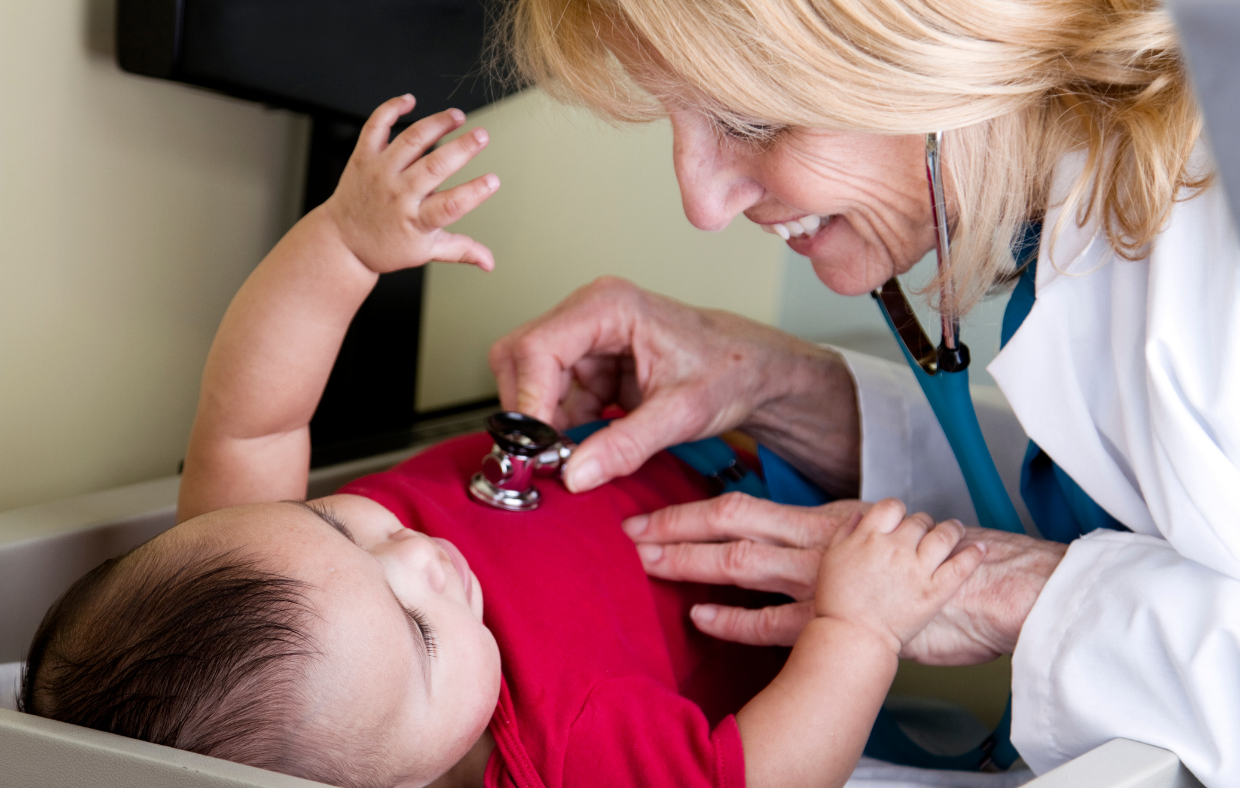When children are sick, it’s pretty obvious they need to see a medical provider. It might seem counterintuitive, but the visits that take place when children aren’t sick are just as important. These appointments, called well-care visits, are opportunities for kids or adolescents and their caregivers to connect with medical providers to make sure their development is on track and take action to maximize their future health.
The American Academy of Pediatrics (AAP) recommends well-care visits for babies and young toddlers at 3 to 5 days old, then at 1, 2, 4, 6, 9, 12, 15, 18, 24, and 30 months old. Young people between the ages of 3 and 21 years old should have one well-care visit every year.
Tracking growth and development
At the well-care visit, a medical provider like me will do a full exam to evaluate the patient’s growth and development. We ask kids and their caregivers questions and take measurements. Depending on the child’s age, we measure height, weight, blood pressure, heartbeat, and reflexes. Additionally, we ask questions to identify whether children are meeting social-emotional milestones and screen for anemia. We evaluate vision and hearing, and check lead levels in children younger than 6.
Our goal is to intervene as early as possible to address any developmental issues. At well-care visits, we assess fine and gross motor skills, speech, and look for any signs of neurological or developmental disorders such as autism. Beginning at age 12, medical providers screen for mental health problems like anxiety and depression and for drug and alcohol use. We recommend that patients have a general set of labs drawn in adolescence, the results of which can be used as a baseline to monitor changes in their future health. If there are any next steps to take, we will discuss them with the family at the time of the appointment. Identifying issues early leads to the best outcomes.
Preventing disease through immunizations
At well-care visits, medical providers recommend immunizations to prevent serious diseases including measles, pertussis, polio, chicken pox, whooping cough, RSV, and others. The Centers for Disease Control and Prevention (CDC) establishes the recommended schedule for immunizations.
During the past few years, many families have understandably gotten off track with regular check-ups. Between the disruption of the pandemic and increased skepticism about vaccines, many children and adolescents fell behind on immunizations. When large numbers of people don’t receive recommended vaccines, it can have significant negative impacts, resulting in children becoming seriously ill and increased cases of disease in those who are immunocompromised or too young to be vaccinated.
Although medical providers recommend following the CDC’s immunization schedule, families are not required to do so. Well-care visits are opportunities for caregivers and kids to ask any questions they have about vaccines, their efficacy, and any potential side effects. We can also talk about the best ways for children (or caregivers!) who are nervous around needles to manage these appointments with limited stress.
Parents and caregivers can be pretty hard on themselves, but those of us who work with families never parent-shame. Parents are humans and only have 24 hours in a day! We don’t view anyone negatively for falling behind on well-care visits or immunizations. If your family needs to catch up, the best thing to do is schedule an appointment with your child’s medical provider (if you don’t have one, you can contact a federally qualified health center like MCHC Health Centers). From there we will do an exam and any screenings needed for their age, see where they are on their immunizations, talk with caregivers and kids about any concerns they have, and make a plan for what comes next.
Time to connect, ask questions, address concerns
As medical providers, we value every opportunity to connect with children, adolescents, and caregivers. In addition to tracking growth and development and focusing on disease prevention, well-care visits give caregivers and patients of all ages opportunities to ask medical providers questions and talk about concerns. Prioritizing well-care visits for children and adolescents leads to better relationships between patients and medical providers and paves the way for better health outcomes through childhood, adolescence, and beyond.
Liz Osborne is a Family Nurse Practitioner at MCHC Health Centers’ Lakeview center in Lakeport, Ca.

 MyChart Login
MyChart Login

